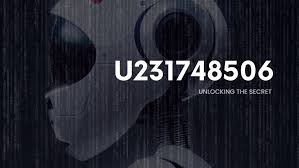Hiring python developers can be difficult, especially if you don’t know what you’re looking for in terms of skill level or experience. The difference between an intermediate and advanced developer, or an entry-level coder and one with more than five years of experience, can be vast, but not easily discernible by the untrained eye. If you want to make sure you hire python developers the right person for the job, here’s a guide on how to find the best Python developers from the comfort of your own home or office.
What kind of application do you want to develop?
Before you get started, you need to know whether you want to create a desktop application, a mobile app, or an API. These are three very different types of applications that call for different skills and workflows. If you’re not sure which one is right for your idea, try thinking about how you would actually use it—would it make sense as a native desktop app? As something to use on mobile? Or somewhere in between?
Which language do you want to use?
There are a lot of options when it comes to languages that are useful in building websites and applications. The first, and most important decision you’ll need to make, is which language or set of languages will be used to build your site. Ideally, you should have a solid knowledge of all three.
How much time do you have?
It’s easy to underestimate how much time you’ll need to learn a new programming language. On top of learning syntax and a built-in library, you also have to consider that switching from one programming language to another is like learning a whole new language. If you don’t plan enough time, then you might find yourself burning out before seeing any results! To learn Python effectively, it will take on average around 30 hours of focused study over one week.
Where will the application be hosted?
The first step to developing a website is determining where it will be hosted. Choosing between creating your own virtual private server (VPS) or using a Platform as a Service (PaaS) provider can be difficult. PaaS services give you more of an out-of-the-box solution and require less maintenance, but hosting everything on one service makes you more vulnerable to failure.
What libraries are available?
Luckily, there are many choices when it comes to Python developers libraries for building websites. There’s Django and Flask, Pyramid and Bottle, as well as a few more. Each library has different objectives and features, but we’ll focus on what they have in common to keep things simple.
How will users interact with your application?
The first thing you need to consider when building a web application is how your users will interact with it. You’ll want to make sure that, whatever approach you take, it is easy and intuitive to use. Don’t assume that just because you’re dealing primarily in text that your user won’t want anything other than plain-text input forms. Give them as much flexibility as possible when interacting with your application so they don’t feel restricted by what they can do and can navigate intuitively through its features.
How should it look?
Now that you have a feel for what your website will look like and how it will function, it’s time to visualize how these items can be translated into code. The result is what’s called a design mockup. A design mockup isn’t meant to look pretty—it’s supposed to communicate how you want everything to appear on your site, including the CSS styles you plan on using, which images and fonts you plan on using, etc.
Is this really what you want to build?
Before you start coding, there’s a simple question you should ask yourself: What am I actually trying to build? Don’t build anything until you have an answer to that question. If you don’t already know what it is, now is a good time to start brainstorming and prioritizing features—and read up on how to actually develop your idea into something tangible.



